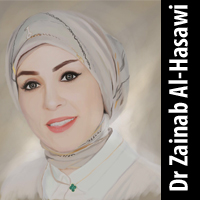
In continuation of what I said in the previous article about the significance of utilizing Kuwait’s leading experience in integrating students with special needs (learning difficulties) in mainstream schools, the researcher assessed the vocational development programs the directors of integration schools in Mubarak Al-Kabeer underwent with the aim of developing a strategy to vocationally develop those directors’ skills in dealing with students with learning difficulties and integrating them in mainstream schools (a PhD thesis).
The strategy was based upon Mubarak Al-Kabeer educational zone’s three-year experience in integrating students with special needs into 30 of the zone’s mainstream primary schools for girls and boys. The main points of strength in Kuwait’s integration experience is in the fact that the training courses held targeted all those involved in the integration program including school directors, HODs, psychiatrists and supervisors. In addition, the concept of integration as well as proper means of implementation were made very clear to them. Assessing the success of the integration strategy in Kuwait relied on:
Bridging the gap between the standards of integrating students with special needs in mainstream schools in Kuwait and those of UNESCO that had been already adapted to suit the Kuwaiti society’s culture.
Full realization of the importance of achieving comprehensive quality in integration school directors’ vocational development.
Developing the educational process elements to provide proper foundations for building strong infrastructure for learners with various abilities, namely those with special needs, who are already in the core of achieving the Kuwaiti society’s goals.
Achieving excellence through providing staff members working with the integration program with all aids, tools and capabilities. l Motivating leaders (directors) to achieve excellence and high productivity.
Rooting the values of democracy, liberty, accepting others and human rights.
Taking care of students with special needs, allowing them to excel and utilize their potentials to benefit the society as well as themselves.
Creating students capable of confronting and dealing positively with economic and cultural openness.
Achieving democracy and supporting the principle of providing equal educational opportunities in public education. Finally, integration should be the cornerstone of governmental educational policies within a framework of providing education for all and fulfilling special needs. (To be continued) —Translated by Kuwait Times from Al-Anbaa
By Dr Zainab Al-Hasawi



